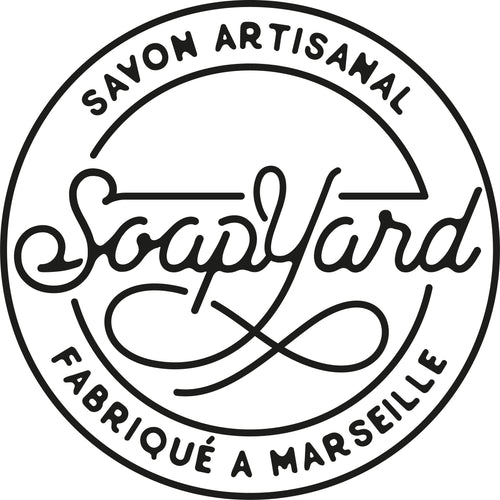Traditional Marseille Soap vs. Modern French Soaps: Understanding the Difference
The world of French soap is as rich and varied as the Provence landscapes that inspire it. From the centuries-old Marseille soap to newer creations crafted in the same region, each type has its own unique story, ingredients, and benefits. If you’re wondering what sets traditional Marseille soap apart from more modern French soaps made in Marseille, this guide will help you understand the key differences.
What Is Traditional Marseille Soap?
Traditional Marseille soap, or savon de Marseille, is a product of history, craftsmanship, and strict regulations. Its legacy is tied to Provence and its natural bounty, with rules that have defined its composition and production methods for centuries.
- Ingredients: Authentic Marseille soap is made with a minimum of 72% vegetable oils, such as olive oil, and is free from animal fats, synthetic fragrances, and artificial additives.
- Production Process: It’s crafted using the Marseillaise method, a labor-intensive process that involves boiling vegetable oils with water and natural soda ash in large cauldrons. The soap is purified with sea salt and then air-dried for weeks.
Uses: Marseille soap is prized for its versatility, serving as a body soap, shampoo, laundry detergent, stain remover, and even as a household cleaner.

The Rise of Modern French Soaps
While traditional Marseille soap remains a staple, modern French soaps crafted in Marseille have emerged as creative interpretations of this age-old craft. These soaps often take inspiration from Provence’s rich culture and natural beauty while offering a broader range of options for today’s consumers.
- Ingredients: Modern French soaps may incorporate additional ingredients like shea butter, essential oils, and perfumes to enhance their fragrance and skin-nourishing properties. Some may include animal fats or synthetic additives, making them distinct from the strictly plant-based Marseille soap.
- Production Process: Unlike traditional Marseille soap, these soaps may use modern manufacturing methods or blend traditional and contemporary techniques. They often focus on smaller-scale, artisan production.
- Appearance: Modern French soaps are typically smaller, more colorful, and often feature intricate designs or embossed logos. They may also come in shapes like ovals, circles, or novelty forms.
- Fragrances: These soaps offer a wide variety of scents, from classic lavender and rose to exotic blends like fig and orange blossom, reflecting the diverse aromas of Provence.
- Specialty Products: Many modern French soap-makers produce soap on a rope, decorative gift sets, and exfoliating bars infused with natural herbs or seeds.
Key Differences Between Traditional Marseille Soap and Modern French Soaps
| Feature | Traditional Marseille Soap | Modern French Soaps |
|---|---|---|
| Ingredients | 100% vegetable oils, often olive | May include animal fats, perfumes, or additives |
| Production | Made using the Marseillaise method | Blend of traditional and modern techniques |
| Appearance | Large cubes or bars, earthy tones | Colorful, varied shapes, decorative |
| Fragrance | Subtle, natural scents | Wide variety of perfumes |
| Uses | Multi-purpose, eco-friendly | Primarily for personal care |
| Price Range | Typically affordable, sold in bulk | Often higher-priced, artisanal |
Which Soap Should You Choose?
Choosing between traditional Marseille soap and modern French soaps comes down to personal preference and your specific needs:
-
Go for Marseille Soap if You Value:
- A time-tested, all-natural product.
- Multi-purpose versatility.
- Eco-friendly and biodegradable options.
-
Opt for Modern French Soaps if You Enjoy:
- Unique fragrances and colorful designs.
- A luxurious personal care experience.
- Specialty products like exfoliating bars or soap on a rope.
Browse our Provencal soaps and traditional Marseille Bars
The Best of Both Worlds
At Soapyard , we celebrate the rich heritage of Marseille soap while embracing the creativity of modern French soap-making. Whether you’re drawn to the natural simplicity of savon de Marseille or the vibrant charm of contemporary artisan soaps, we offer a curated collection to suit every taste.
Browse our selection of:
- Traditional Marseille Soaps: Perfect for eco-conscious households and versatile cleaning.
- Modern French Soaps: Beautifully scented and designed for indulgence and gifting.
- Soap on a Rope: A nostalgic yet stylish addition to your bathroom.
Preserving Provence’s Legacy
While their differences are clear, both traditional Marseille soap and modern French soaps share a common thread: their connection to Provence. Each bar tells a story of craftsmanship, quality, and the timeless allure of southern France. Whether you prefer the rustic charm of a Marseille cube or the elegant luxury of a scented French bar, you’re supporting a proud tradition that has endured for generations.

